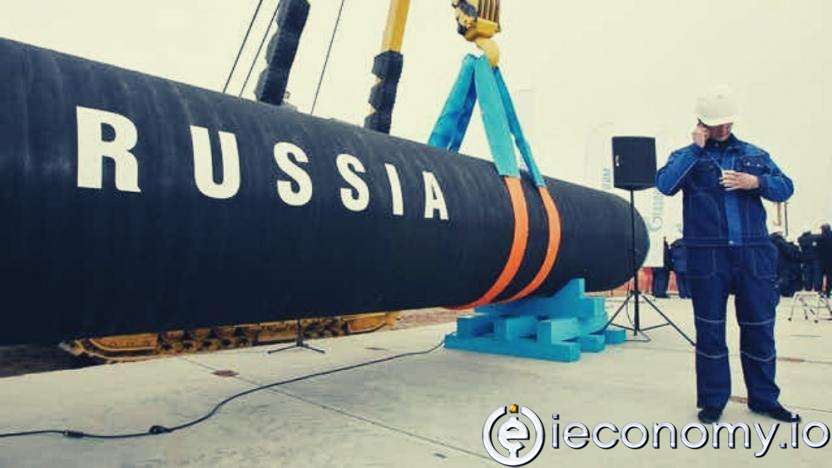12338
0
The European Union is looking into ways to purchase Russian gas
The European Union is looking into ways to buy natural gas from Russia without violating sanctions. Here are the details...

Yazar: James Gordon
Yayınlanma: 16 Mayıs 2022 06:11
Güncellenme: 3 Mart 2026 08:47
The European Union is looking into ways to purchase Russian gas
It was noted that the European Union (EU) is in the process of preparing to offer a solution to prevent violations of sanctions when procuring fuel from Russia on behalf of companies wishing to purchase gas, and to effectively meet Vladimir Putin's requests for payment in rubles.
The European Union is looking into ways to buy natural gas from Russia without violating sanctions. European giants continue to work to figure out how they can meet Moscow's demand and keep vital gas flowing without violating sanctions on Russia's central bank. Vladimir Putin stated on March 31 that gas exports would be stopped if payments were not made in rubles. At first, the European Union judged that the payment method requested by Russian President Putin gave Moscow full control of the process, violated contracts and - most importantly - violated the bloc's sanctions. The Commission stated in a private and closed meeting on Friday that the current guide will clarify to member countries that companies can open an account in Euro or Dollar at Gazprombank on the Kremlin's instruction. The European Union's executive arm, however, did not say whether a ruble account, a step in the Russian decree, is compliant with EU regulations. Officials had previously stated that opening such an account, even if not in writing, would violate sanctions. Gas flow is cut off While it was seen that the supplies of Poland and Bulgaria were cut off because Russia did not fulfill its demands, it was discussed that importer companies whose payments are approaching may experience cutbacks in case of not paying their debts. While Vladimir Putin's demands for payment in rubles have divided European Union member states, showing some countries' dependence on Russian imports, Italian Prime Minister Mario Draghi noted earlier this week that European companies can pay for natural gas in rubles without violating sanctions. At the meeting on Friday, government representatives were also divided. Germany, Hungary, Italy and France broadly supported the commission's plan, while Poland lacked legal clarity and called for the issue to be discussed by EU ambassadors.İLGİLİ HABERLER





European stocks soared and focus shifted to German retail sales after Powell's speech!

Forex Signal For TRY/USD: Inflation Slowdown in November.

Forex Signal For GBP/USD: Bullish Trend Still Not Breaking While Recovery Continues.

Forex Signal For EUR/USD: Starry US Data Points to Higher Fed Increases.

Forex Signal For BTC/USD: Downside Continues as Bitcoin Recovery Moves Less.
En Popüler Haberler
Yorum Yap
Yorumlar
Henüz yorum yapan yok! İlk yorumu siz yapın...